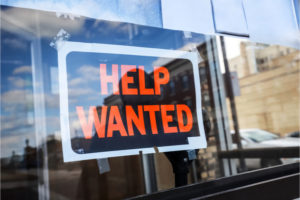Despite what Joe Biden claims, it is hard to believe the U.S. economy is “on the right track.”
Dick and I started our road trip from Florida to New England last Wednesday. In Key West, the lack of workers is notably stressing many businesses. Wherever we have stopped, from Islamorada to Palm Beach to Hammock Beach (FL) to Beaufort and Charleston (SC), the complaint has been the same:
We can’t get enough help.
Last month there were 7.4 million job openings, but only 266,000 people actually got a job, reports BRIGHT editors.
How can this be? Well, for one, the Biden administration is still using our tax dollars to pay people not to work.
According to many Republicans, enhanced and extended unemployment benefits are a disincentive to Americans seeking work, especially in low-wage jobs where the aid often pays more than they earned at previous jobs.
For months, U.S. employers have been complaining that the federal $300 weekly jobless bonus has made it difficult to hire. As the WSJ notes, most lower-income workers can make more sitting on the couch.
It’s notable that half of the new labor market entrants last month were teens, most of whom don’t qualify for jobless benefits because of their short or nonexistent employment histories.
The Biden administration blames lack of access to childcare and shortages of computer chips as the root cause for a more robust job growth.
Even as the economy was growing fast again in the spring, Democrats extended the $300 weekly bonus into September, as the Biden administration ladled out a bonanza of other transfer payments, reports the WSJ.
Democrats claimed their $1.9 trillion spending bill was needed to jolt the economy, though it was fast recovering as vaccines rolled out and lockdowns eased. Now the White House is spinning the jobs miss after its spending blowout as something it expected.
The good news for those who are working is that employers are paying more to attract and keep them. Average hourly earnings last month increased at an 8.4% annual rate and even more for lower-income jobs like retail (16.8%) and leisure and hospitality (19.2%). The risk is that these wage increases will become embedded in expectations and lead to a more general inflation.
The policy lesson is to ease government constraints on supply. That means repealing the federal bonus not to work. And it should mean withdrawing the Biden tax increases that are a frontal attack on investment and supply. There is no need for more Keynesian stimulus, which has become part of the problem.
Read more in Dale’s Diner no mas.
If you’re willing to fight for Main Street America, click here to sign up for the Richardcyoung.com free weekly email.






